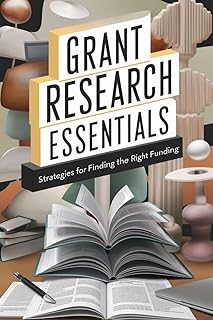The National Science Foundation (NSF) supports early-career researchers through a variety of funding opportunities across different research areas. These grants and supplemental funding aim to empower researchers at the assistant professor level or equivalent positions.
One such program, the Building Research Capacity of New Faculty in Biology (BRC-BIO), assists pre-tenure faculty in the biological sciences at non-R1 institutions. This initiative offers up to $450,000 in funding over a 36-month period, including support for equipment costs.
Early-career faculty members can also benefit from the Faculty Early Career Development Program (CAREER), which provides a minimum of $400,000 over five years. This program targets assistant professors who demonstrate potential as academic role models in research and education.
Another significant funding opportunity is the Career-Life Balance Supplemental Funding Requests, which address the retention of early-career researchers in STEM fields. These supplements offer up to $30,000 for additional personnel to support researchers on family leave or other family responsibilities.
The Computer and Information Science and Engineering Research Initiation Initiative (CRII) supports early-career scientists in computer and information science at non-R1 institutions. With awards of up to $175,000 over 24 months, this program enables exploratory research and collaboration development.
The EArly-Concept Grants for Exploratory Research (EAGER) mechanism funds high-risk, high-reward research ideas with awards of up to $300,000. This initiative allows for a shorter time between proposal submission and funding availability.
For researchers new to STEM education, the Building Capacity in STEM Education Research (ECR: BCSER) program provides up to $350,000 over three years. This initiative supports the development of knowledge and skills necessary for rigorous STEM education research.
The Engineering Research Initiation (ERI) program offers up to $200,000 over 24 months to new investigators at non-R1 institutions. These awards aim to advance the research programs and careers of early-career researchers in engineering.
EPSCoR Research Fellows supports investigators in EPSCoR-eligible jurisdictions through collaborative visits to research centers. This initiative aids early- and mid-career researchers in further developing their research potential.
The Launching Early-Career Academic Pathways in the Mathematical and Physical Sciences (LEAPS-MPS) program backs pre-tenure faculty in these disciplines with awards of up to $250,000 over 24 months. This funding supports research at institutions traditionally with limited NSF funding.
In conclusion, these NSF funding opportunities play a crucial role in supporting and nurturing the next generation of researchers in various scientific fields, ensuring a vibrant and innovative research landscape.
📰 Related Articles
- Xbox Games Showcase 2025 Unveils Diverse Gaming Lineup
- Xbox Game Pass: Diverse Selection of Blockbuster and Indie Games
- Women’s Wealth Alliance Survey Empowers Female Professionals in Finance
- White Rose Shopping Centre Welcomes Diverse Retail & Entertainment Additions
- WhatsApp: Diverse Features and Security for Global Connectivity






